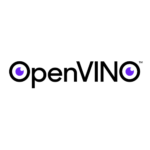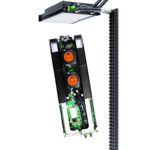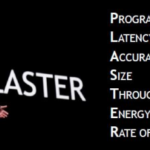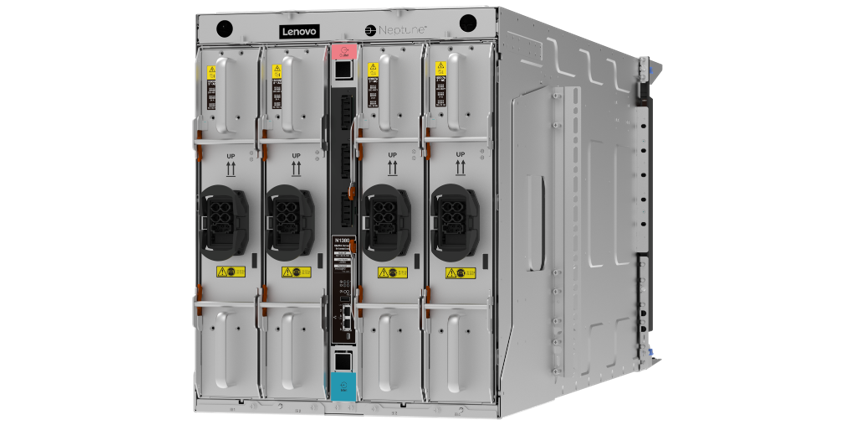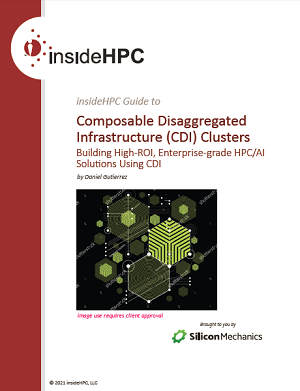When Accenture Federal Services researched how current AI technologies could be used by the U.S. federal government, Accenture documented nearly 100 use cases for AI adoption. Artificial intelligence is making a difference to government right now. For more information on how to get involved in this important and growing sector, take advantage of the resources outlined in this excerpt from an insideHPC Guide.
Lenovo Enables Solutions for the ‘New HPC’
The new HPC, inclusive of analytics and AI, and with its wide range of technology components and choices, presents significant challenges to a commercial enterprise. Ultimately, the new HPC brings about opportunities that are worth the challenges. This whitepaper from Lenovo outlines new markets, workloads and technologies in HPC, as well as how its own products and tech are addressing the solution needs of the “new HPC.”
Putting Computer Vision to Work with OpenVINO
OpenVINO is a single toolkit, optimized for Intel hardware, that the data scientist and AI software developer can use for quickly developing high-performance applications that employ neural network inference and deep learning to emulate human vision over various platforms. “This toolkit supports heterogeneous execution across CPUs and computer vision accelerators including GPUs, Intel® Movidius™ hardware, and FPGAs.”
Plug and Play Liquid Cooling for AI and HPC
Cutting edge AI and HPC clusters require the highest performance versions of the latest CPUs and GPUs. Coming along with the throughput, these components bring high heat loads. Often, liquid cooling becomes a requirement in these circumstances. This sponsored post from Asetek explores how increasing AI and HPC workloads, as well as accompanying components like CPUs and GPUs, are heating up computing and bringing liquid cooling to the forefront.
HPC and AI Convergence Take Center Stage for Intel at SC18
Intel has Big Plans at SC18 later this month, many of which are focused on HPC and AI convergence, and the intersections between these two sectors. “HPC is expanding beyond its traditional role of modeling and simulation to encompass visualization, analytics, and machine learning. Intel scientists and engineers will be available to discuss how to implement AI capabilities into your current HPC environments and demo how new, more powerful HPC platforms can be applied to meet your computational needs now and in the future.”
How to Control the AI Tsunami
Clients tell us there is a wide range of users beyond data scientists that want to get in on the AI action as well, so we recently updated LiCO with new “Lenovo Accelerated AI” training and inference templates. These templates allow users to simply bring their dataset into LiCO and request cluster resources to train models and run inference without coding.”
The Rising AI Tide in HPC – Are You Ready?
This guest article from Dr. Bhushan Desam, Lenovo’s Director, Global Artificial Intelligence Business covers how new HPC tools like Lenovo’s LiCO (Lenovo Intelligent Computing Orchestration) are working to address the growing popularity of AI in HPC and to simplify the convergence of HPC and AI.
Scale Your HPC Environment for AI Workloads
In this guest post, Intel Data Center Group’s Trish Damkroger covers how to scale your HPC environment for AI workloads. “Intel’s HPC interoperable framework assists developers with tools to modernize applications for advanced workloads and support for development languages like Python, C++, and Fortran.”
Exploring the Convergence of AI, HPC & More
This fall, the Intel Extreme Performance Users Group (IXPUG) will host a free conference focused on key high-performance computing, artificial intelligence, and cloud computing topics.This guest post from Intel explores how AI and HPC are converging and and how the two areas of technology — as well as cloud computing — are converging.
NVIDIA Offers Framework to Solve AI System Challenges
At the recent NVIDIA GPU Technology Conference (GTC) 2018, Jensen Huang, NVIDIA President and CEO, during his presentation focused on a new framework designed to contextualize the key challenges using AI systems and delivering deep learning-based solutions. A new white paper sponsored by NVIDIA outlines these requirements — coined PLASTER.



